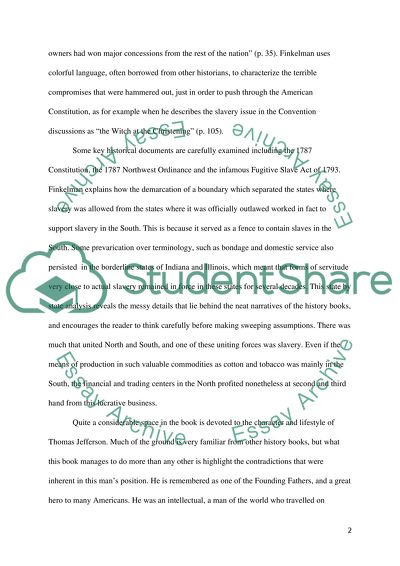Cite this document
(“Critical Book Review - Slavery and the Founders , Race and Liberty in Report/”, n.d.)
Retrieved from https://studentshare.org/history/1597353-critical-book-review-slavery-and-the-founders-race-and-liberty-in-the-age-of-jefferson-2nd-edition-by-paul-finkelman
Retrieved from https://studentshare.org/history/1597353-critical-book-review-slavery-and-the-founders-race-and-liberty-in-the-age-of-jefferson-2nd-edition-by-paul-finkelman
(Critical Book Review - Slavery and the Founders , Race and Liberty in Report/)
https://studentshare.org/history/1597353-critical-book-review-slavery-and-the-founders-race-and-liberty-in-the-age-of-jefferson-2nd-edition-by-paul-finkelman.
https://studentshare.org/history/1597353-critical-book-review-slavery-and-the-founders-race-and-liberty-in-the-age-of-jefferson-2nd-edition-by-paul-finkelman.
“Critical Book Review - Slavery and the Founders , Race and Liberty in Report/”, n.d. https://studentshare.org/history/1597353-critical-book-review-slavery-and-the-founders-race-and-liberty-in-the-age-of-jefferson-2nd-edition-by-paul-finkelman.


